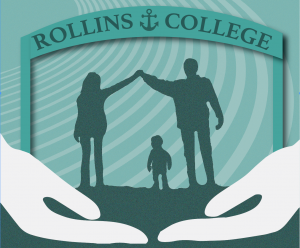
The refugee crisis has been a topic of concern for many years now. Countries around the world including Syria, Turkey, Jordan, and parts of South America are drowning in dangerous war conditions and harsh government treatment. Families find themselves being forced to flee these unsafe conditions in hope of a new start and a brighter future.
Tragically, the refugee crisis recently has grown at an unprecedented rate. What used to be thousands of sanctuary-bound individuals has become millions, overwhelming Westerners far removed from the crisis and feeding controversy and grief throughout politics. However, the Rollins community has stepped up and shown that our faculty, staff, and students plan to demonstrate our mission of global citizenship and responsible leadership by making the ultimate commitment to humanity: providing transitional housing for a refugee family.
About a year ago, Rollins’ Women’s Head Golf coach (National Champion and NCAA Coach of the Year), Julie Garner, was updating herself on the refugee crises. The tragic tales of families dying as they struggled to escape wartime violence inspired her to investigate what Rollins could do to help.
She immediately began gathering faculty and staff across campus, including Dan Chong from the political science department, Leon Hayner from Residential Life, Shelby McGuire, Marissa Corrente and Meredith Hein from CLCE, and Campus Safety officials Ken Miller and Maria Martinez (who is a refugee from Cuba herself). With the support and admiration of President Cornwell, this team of dedicated individuals connected with Catholic Charities of Central Florida to help a family escape danger and begin a better life here in the United States.
The family that Rollins has taken in is comprised of a mother, a father, and their adorable three-year-old son. They have traveled all the way from Colombia, a country that is not often placed in the spotlight when it comes to internal conflict and war.
Ubeknownst to many, Colombia is currently experiencing the world’s longest running civil war, forcing five million residents to abandon their homes. This “invisible crisis” has been largely influenced by the war on drugs throughout Colombia, which some say is the stabilizing factor of their economy, bringing in $9 billion USD a year. When an economy depends on drugs, the government and other key industries remain corrupt and it becomes extremely difficult for families to feel safe and receive the proper employment opportunities and health care they need.
Women and children of Colombia have been particularly vulnerable to the effects the civil war has caused. They suffer from sexual exploitation, malnutrition, violence. It is not uncommon to hear of young girls forced into prostitution by gangs, surviving only by willpower.
These tragedies drove the Rollins team to bring this family to safety at the first opportunity. The team worked countless hours to put together the most sustainable and supportive program they could dream up.
The Rollins Refugee in Residence program has been completely supported by the excess materials here on campus. For example, Sodexo has an established practice of packaging the extra food that isn’t eaten in the Campus Center each day, making it easy to donate to the family. The on-campus Sutton Apartments often have vacancies each year, which are to be used to house the family. All other goods and services have been generously donated by Rollins faculty and staff at absolutely no charge.
Rollins Spanish Professor Patricia Tome has been helping the family learn English, and students stop by to help with laundry, computer programs, and child care, while some even offer to drive the family throughout Orlando to places like church and soccer games.
This innovative program is a pilot run to make sure the transitional living situations are ideal for both the Rollins community and the family being housed. Refugees often find the United States culture overwhelmingly different; this program provides them with a more interactive way to integrate into our country. Since the United States government provides approximately twelve weeks of transitional assistance, the Rollins Refugee in Residence will host the family for one semester as well. If all goes well with this family, Rollins may begin housing a new family each semester.
Chong, an expert in human rights and refugee crises, provided some wonderful insight on how this program has the opportunity to change the lives of refugees while also inspiring Rollins students to take interest in global issues.
When asked about his involvement with the program, Chong said, “I was immediately sold on the idea because I saw it as a tremendous opportunity for Rollins to live our mission and to provide transformational, intimate, personal learning experiences for our students. We spend lots of money each year taking our students abroad to see global issues, but this is a great way to have Rollins students directly engage with global issues here on campus.”
Chong and the other members also made it very clear that the program is always looking for volunteers. If anyone is interested in helping by contributing both time and resources to the program and family, do not hesitate to reach out. These three new members of the Rollins community have shown strength and perseverance in their will to learn an entirely new culture and start over with their lives. Anytime you see them on campus, a warm smile and Spanish greeting would be so appreciated.
Every year, Rollins strives to better the community and make a difference; the Rollins Refugee in Residence Program is taking these bounds to the next level, bettering the world one step at a time.












Be First to Comment